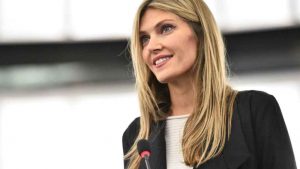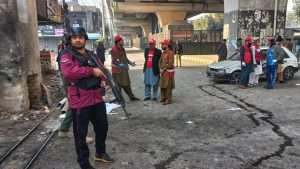Borrell visit to Morocco comes with hidden messages

The EU’s top diplomat, who left a meeting with Nasser Bourita in New York in September 2022 with his tail between his legs after not singing the tune on Western Sahara that Rabat was hoping for, is in the Moroccan capital patching up relations between the EU and Morocco – and sending a clear signal to the Moroccan elite that it is off the hook, with regards to a corruption investigation going on by Belgian police relating to bribes allegedly paid to a number of MEPs going back 15 years.
The High Representative of the European Union for Foreign Affairs and Security Policy Josep Borrell hailed on January 5th the “important role” of Morocco in peace and stability in the region, which was aimed at humouring the Moroccans, following comments made last August questioning whether Spain would support Rabat’s Western Sahara claim to sovereignty.
Of course, as is tradition, the messages offered at a press conference in Rabat with Nasser Bourita – Morocco’s foreign minister who he knows well from when Borrell was Spain’s FM – were coded and written in opaque EU jargon but underlined that Brussels wants Morocco on board for its broader anti Russia policies while hinting that the EU wants Rabat to respect its pragmatic take on Western Sahara.
But the real point of the visit was to put on a show both for Rabat and the EU which underlined that, despite the findings of the Belgian police, Morocco would retain its amiable relations with Brussels. Morocco is reportedly involved in a corruption scandal with its external intelligence service, the DGED – Directorate General for Studies and Documentation.
According to the documents that Belgian newspaper Le Soir and its Italian rival La Repubblica were able to consult, Italian MEPs Antonio Panzeri and Andrea Cozzolino were in contact with the DGED and with Abderrahim Atmoun, Morocco’s ambassador to Poland.
Furthermore, in addition to Abderrahim Atmoun, two agents of the Moroccan intelligence service are cited in these documents.
MEPs have raised concerns over Morocco’s possible involvement following developments in the case set out in Belgian newspapers. Indeed, according to one media outlet which covers the EU, the scandal “has cast a cloud over other EU institutions, and increased media scrutiny of dealings by EU commissioners and top officials who recently dealt with Qatar and Morocco”.
Peter Stano, the spokesman for Borrell said the matter “is in the hands of the judiciary in Belgium” and “we have full trust” in their work to investigate the allegations.
And yet, given the trip to Rabat which could easily have been postponed, sceptics who follow the EU might be led to believe that Brussels is in the process of white washing Morocco.
Not only is there a number of cover ups, when it comes to senior EU officials, in the past which the EU elite have protected, but an unhealthy relationship between the EU and the Belgian police is also important to note. In 2004, Belgian police arrested a German investigative journalist based on entirely false charges which involved his house being searched and his computers taken. The orders came directly from the chief of the EU’s own anti fraud office (OLAF) who was determined to make an example of the journalist and was quite happy to direct Belgian police to do what one officer described as a “Burmah” type arrest. The journalist, Hans-Martin Tillack subsequently won a court case and damages against the EU, but the case highlighted how easily manipulated Belgian police were in the case of EU matters in the Belgian capital.
Borrell’s Rabat visit is already indicating that there is a cover up already under way and that the Moroccans are in the clear.
In his former capacity as foreign minister of Spain, Borrell has pursued active contacts with Morocco, a key partner for Madrid.

The four suspects in Belgian pre-trial detention are: Eva Kaili (above), Giorgi (an assistant); a former Italian MEP, Pier Antonio Panzeri; and Niccolo Figa-Talamanca, the Italian head of an NGO suspected of making payments to MEPs.
All four are charged with “criminal organisation, corruption and money laundering”.
Greece and Italy have launched their own investigations into the alleged corruption.
The European Parliament has vowed reforms to clean up the legislature, including strengthening whistle-blower protections, banning all “unofficial friendship groups” with foreign governments, and increasing vetting of MEPs finances.
Its president, Roberta Metsola, recently launched a procedure to lift the immunity of two other MEPs linked to the case, at the request of Belgian authorities.

The European Parliament on 2 January announced its chief, Roberta Metsola, had launched “an urgent procedure” to lift the immunity of two MEPs amid a corruption scandal linked to Qatar.
They are an Italian MEP, Andrea Cozzolino, and a Belgian one, Marc Tarabella, according to sources briefed on the course of the Belgian investigation.
Tarabella, through his lawyer, said he was innocent and welcomed having his immunity lifted to answer investigators’ questions.
Want to chase the pulse of North Africa?
Subscribe to receive our FREE weekly PDF magazine












